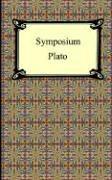Simoto reviewed Symposium and Phaedrus by Plato (Dover thrift editions)
Review of 'Symposium and Phaedrus' on 'Goodreads'
4 stars
Following his excellent method of Socratic dialogues, Plato discusses the origins, concepts and the kinds of love. Symposium hangs between reality and myth, with the participants of the dialogues to contribute their own views about love. Through the dialogues, the reader is not overwhelmed by strict philosophical context, but he is given insight to the daily life of the ancient Athenians with short refreshing breaks from the contemplation. Phaedrus talks about the concepts of lover and non-lover, but also Socrates (Plato) analyzes the functions of rhetoric and writing and whether an orator or writer should be allowed to implement these functions. Finally, sometimes as usual the discourses become confusing to the common reader, but the meaning is easily comprehensible at the end.

